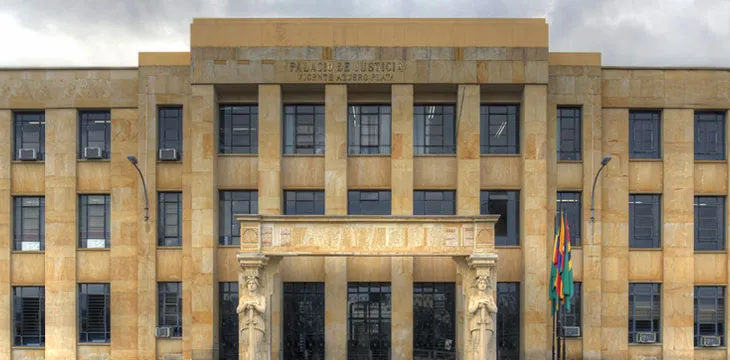|
Getting your Trinity Audio player ready...
|
Colombia takes the giant leap by holding a court hearing in the metaverse, making it the first of its kind.
Colombia’s Magdalena Administrative Court conducted legal proceedings for a traffic dispute in the metaverse, with parties to the case appearing as avatars. Magistrate Maria Quinones Triana’s avatar, dressed in customary black legal robes, oversaw the proceedings.
“It felt more real than a video call,” said Quinones. “On Zoom, many people turn off their cameras, and so you have no idea what they’re doing.”
Quinones added that court proceedings in the metaverse were “simply amazing,” and although still in the experimental stages, she had high hopes for the technology in improving legal services. The matter, a case brought by the regional transport union against the municipal police, will continue to be heard in the metaverse with a ruling touted to be given in the virtual world.
“This is an academic experiment to show that it’s possible, but where everyone consents to it, my court can continue to do things in the metaverse,” Quinones told reporters.
During the pandemic, courts opted to use video conferencing tools like Zoom to carry out hearings, but while it achieved initial successes, the flaws of using such systems became apparent. Individuals could turn off their microphones and cameras or miss hearings, which could amount to contempt of court in some jurisdictions.
The usage of virtual worlds in meetings has caught some criticism, with some poking holes in the “clunky, cartoonish visualizations” of avatars.
Earlier this year, the World Economic Forum took a giant leap into the metaverse by allowing attendees to experience the forum in 3D digital sessions dubbed the Global Collaboration Village. Conference attendees were able to explore Davos in virtual worlds during the weeklong event in the Swiss city.
So near, yet so far
Although initial forays have been made in real-world applications for the metaverse, analysts predict widespread adoption might be at least five years away, given the lack of hardware. This sentiment is shared by The Sandbox co-founder Sébastien Borget as his firm continues exploring methods to improve adoption.
“We still have to mystify a little bit what the metaverse is today and what it can be in three, five, 10 years from now,” said Borget. “How can we make sure that a metaverse platform will respect user privacy, that it will implement enough rules or controls to make sure that users can be safe and protected and their digital assets as well?”
Back in December, South Korea’s Ministry of Science and ICT (MSIT) unveiled a metaverse strategy involving ethical principles for the metaverse. Top on the agenda for MSIT includes authenticity, reciprocity, respect for privacy, and inclusiveness.
Watch: BSV Stories Episode 7 Unravelling the Metaverse at the CES Tech Las Vegas 2022

 07-15-2025
07-15-2025 





